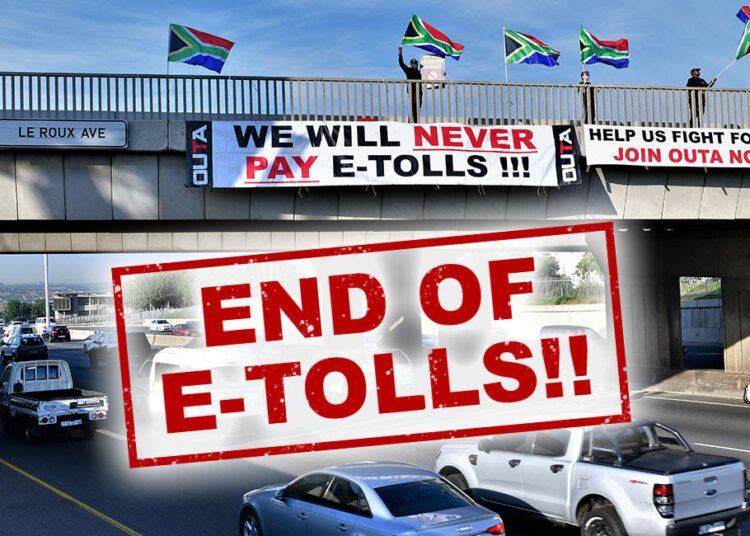The government has officially switched off the gantries of the Gauteng Freeway Improvement Project (GFIP), popularly known as e-tolls.
“From this moment forth, road users will no longer be charged for using the GFIP network. This decision is a testament to our government’s commitment to listen to and serve the needs of its citizens,” Minister of Transport, Sindisiwe Chikunga, said in Centurion during a ceremonial switch-off.
The gantries were switched off on during the week at midnight at the South African National Roads Agency (SANRAL) Central Operations Centre.
Although the system of e-tolling was implemented after some consultation had taken place, it aggravated a lot of the public and concerned Cabinet.
“When e-tolls were first introduced, the intention was to provide the critical road infrastructure necessary to support Gauteng’s thriving economy, one of the largest in our nation and on our continent. However, we have heard the pleas of Gauteng motorists, and after careful deliberation, we have responded.
“A three-member Cabinet committee, tasked by President Cyril Ramaphosa in 2019, has diligently explored alternative funding solutions for the GFIP debt repayment and the backlog of maintenance and rehabilitation costs.
“The result is a Memorandum of Agreement that formalises these solutions and outlines the financial contributions from the Gauteng Province and the national government,” the Minister said.
She said government is committed to continually engaging with all stakeholders to explore adequate and sustainable funding solutions for road construction, maintenance, and upgrades, supporting economic development across our nation,” the Minister said.
“As government, we are still in discussion regarding the historical debt owed by motorists. For SANRAL, this significant milestone unlocks the ability to approach the private sector for funding, enabling the agency to execute its pipeline of capital expenditure projects. As we bid farewell to e-tolls, it is important to note that the benefits of improved roads remain,” Chikunga said.
The Minister reiterated that as of Friday, road users will no longer be charged for the use of the Gauteng e-toll routes
“Road users will not be required to do anything when e-tolling is cancelled. Importantly, ‘current valid accounts’ can still be used for payments at toll plazas and other Value-Added Services (i.e. parking). This is critical for the ongoing, long-term benefit of inter-operability.
“The tag beeps will stop after Thursday midnight. The gantry lights and cameras will remain on for road safety purposes. The e-toll website will be updated with respect to the cancellation, including Mobility/Tag account functionality for services, i.e. interoperability and parking, etc.
“The e-toll stores will remain open as the tag can still be used for interoperability, account queries and other potential transport related services that will be determined in due course. The e-toll branding will be removed in phases,” Chikunga said.
E-toll invoices will be rolled up until the last day and issued up until this period.
Additional information is, that due to potential delays in the postal system, invoices will still be received sometime after 12 April 2024. However, no transactions post-midnight tonight will appear on the invoice or statement.






























































